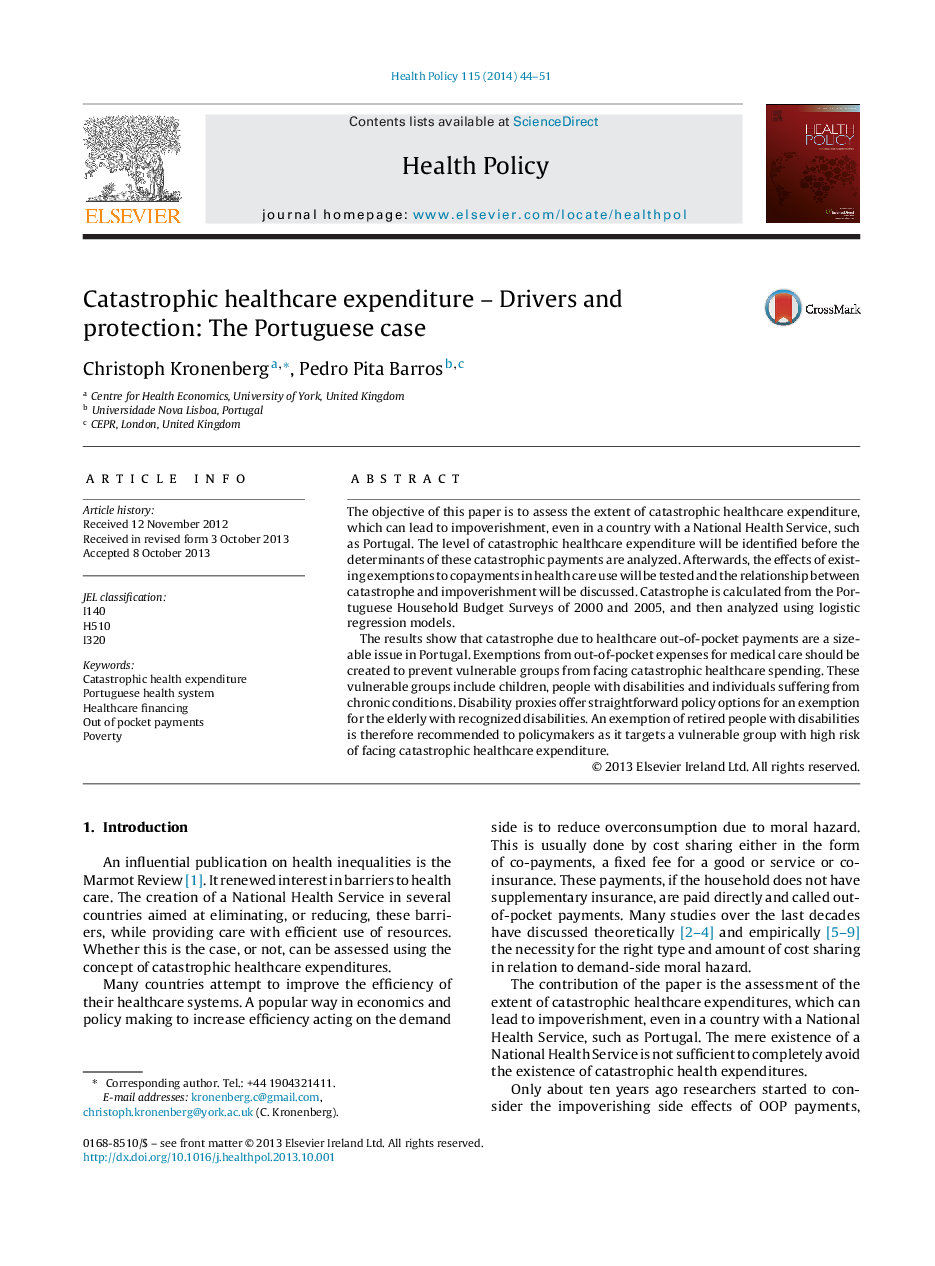| Article ID | Journal | Published Year | Pages | File Type |
|---|---|---|---|---|
| 6239645 | Health Policy | 2014 | 8 Pages |
The objective of this paper is to assess the extent of catastrophic healthcare expenditure, which can lead to impoverishment, even in a country with a National Health Service, such as Portugal. The level of catastrophic healthcare expenditure will be identified before the determinants of these catastrophic payments are analyzed. Afterwards, the effects of existing exemptions to copayments in health care use will be tested and the relationship between catastrophe and impoverishment will be discussed. Catastrophe is calculated from the Portuguese Household Budget Surveys of 2000 and 2005, and then analyzed using logistic regression models.The results show that catastrophe due to healthcare out-of-pocket payments are a sizeable issue in Portugal. Exemptions from out-of-pocket expenses for medical care should be created to prevent vulnerable groups from facing catastrophic healthcare spending. These vulnerable groups include children, people with disabilities and individuals suffering from chronic conditions. Disability proxies offer straightforward policy options for an exemption for the elderly with recognized disabilities. An exemption of retired people with disabilities is therefore recommended to policymakers as it targets a vulnerable group with high risk of facing catastrophic healthcare expenditure.
